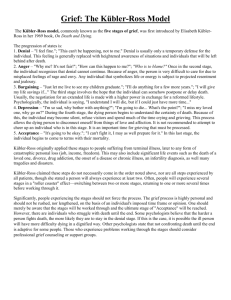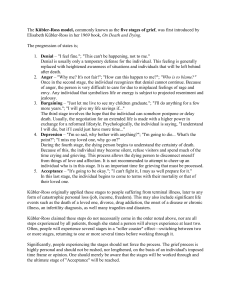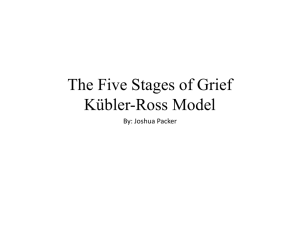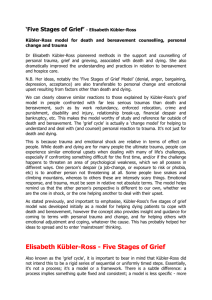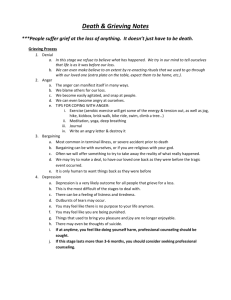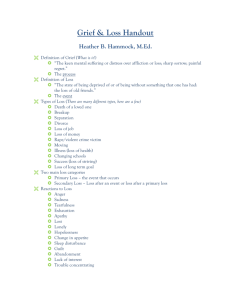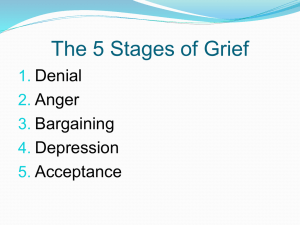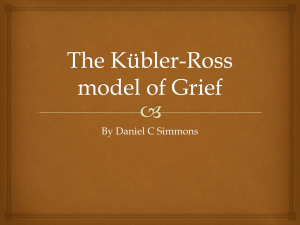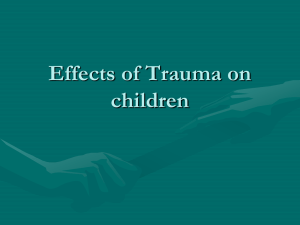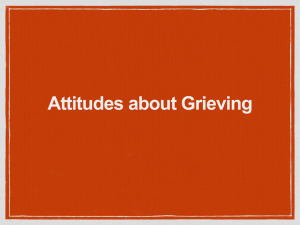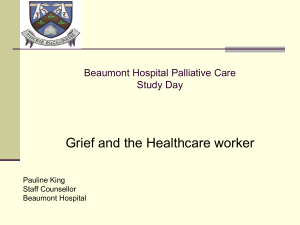Kübler-Ross: 5 Stages of Grief - Understanding the Grief Cycle
advertisement
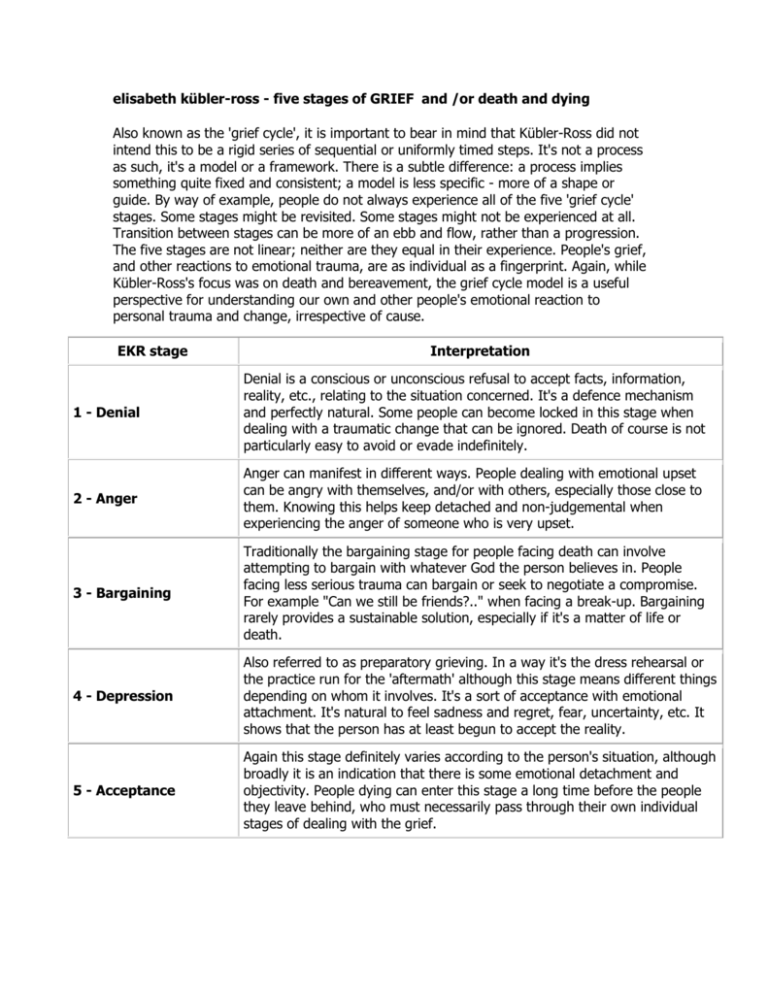
elisabeth kübler-ross - five stages of GRIEF and /or death and dying Also known as the 'grief cycle', it is important to bear in mind that Kübler-Ross did not intend this to be a rigid series of sequential or uniformly timed steps. It's not a process as such, it's a model or a framework. There is a subtle difference: a process implies something quite fixed and consistent; a model is less specific - more of a shape or guide. By way of example, people do not always experience all of the five 'grief cycle' stages. Some stages might be revisited. Some stages might not be experienced at all. Transition between stages can be more of an ebb and flow, rather than a progression. The five stages are not linear; neither are they equal in their experience. People's grief, and other reactions to emotional trauma, are as individual as a fingerprint. Again, while Kübler-Ross's focus was on death and bereavement, the grief cycle model is a useful perspective for understanding our own and other people's emotional reaction to personal trauma and change, irrespective of cause. EKR stage Interpretation 1 - Denial Denial is a conscious or unconscious refusal to accept facts, information, reality, etc., relating to the situation concerned. It's a defence mechanism and perfectly natural. Some people can become locked in this stage when dealing with a traumatic change that can be ignored. Death of course is not particularly easy to avoid or evade indefinitely. 2 - Anger Anger can manifest in different ways. People dealing with emotional upset can be angry with themselves, and/or with others, especially those close to them. Knowing this helps keep detached and non-judgemental when experiencing the anger of someone who is very upset. 3 - Bargaining Traditionally the bargaining stage for people facing death can involve attempting to bargain with whatever God the person believes in. People facing less serious trauma can bargain or seek to negotiate a compromise. For example "Can we still be friends?.." when facing a break-up. Bargaining rarely provides a sustainable solution, especially if it's a matter of life or death. 4 - Depression Also referred to as preparatory grieving. In a way it's the dress rehearsal or the practice run for the 'aftermath' although this stage means different things depending on whom it involves. It's a sort of acceptance with emotional attachment. It's natural to feel sadness and regret, fear, uncertainty, etc. It shows that the person has at least begun to accept the reality. 5 - Acceptance Again this stage definitely varies according to the person's situation, although broadly it is an indication that there is some emotional detachment and objectivity. People dying can enter this stage a long time before the people they leave behind, who must necessarily pass through their own individual stages of dealing with the grief.
